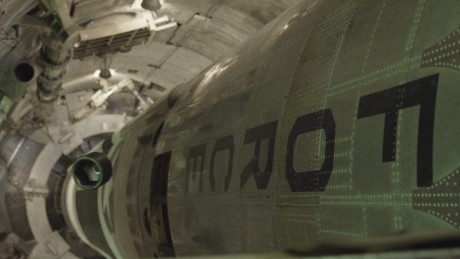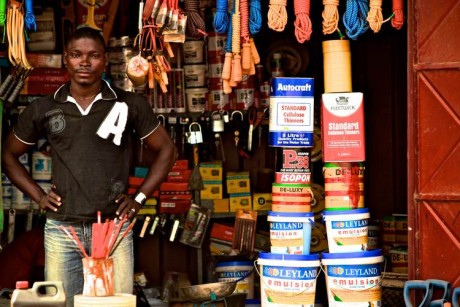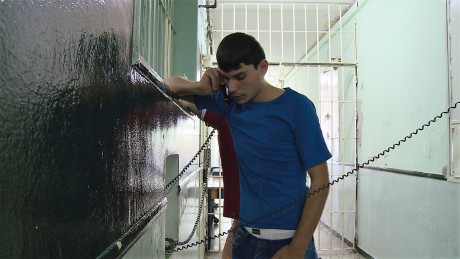ROBERT KENNER: COMMAND AND CONTROL
”President Jimmy Carter’s national-security adviser, Zbigniew Brzezinski, was asleep in Washington, D.C., when the phone rang. His military aide, General William Odom, was calling to inform him that two hundred and twenty missiles launched from Soviet submarines were heading toward the United States. Brzezinski told Odom to get confirmation of the attack. A retaliatory strike would have to be ordered quickly; Washington might be destroyed within minutes. Odom called back and offered a correction: twenty-two hundred Soviet missiles had been launched.
Brzezinski decided not to wake up his wife, preferring that she die in her sleep. As he prepared to call Carter and recommend an American counterattack, the phone rang for a third time. Odom apologized—it was a false alarm. An investigation later found that a defective computer chip in a communications device at NORAD headquarters had generated the erroneous warning. The chip cost forty-six cents…”
Sara Thelle, en af redaktørerne af festivalen Docs & Talks, anbefalede mig denne tekst, Eric Schlossers artikel World War Three, by Mistake i The New Yorker 23. december 2016 som forberedelse til at se hans og Robert Kenners film, og jeg giver insisterende anbefalingen videre. Der er et link nedenfor, gå ind og læs! Det er lige nu den lettest tilgængelige opdaterede oversigt over nuclear command and control systemer i USA og Rusland set historisk/retrospektivt. Da jeg i går læste artiklen, blev jeg længe hængende ved det citerede afsnit (som nota bene ikke er den hændelse filmen er bygget over), men lige netop denne billeddannende scene med fru Brzezinzki, for hvem det ville være bedst at sove videre ind i døden, denne erindrede kilde i Schlossers tekst vækkede mig. Jeg var angst igen, angst for selve udslettelsen, som Zbigniew Brzezinski håndterer så åbenenbart velforberedt nøgtern. Hvad jeg bestemt også med gru forventer af den nationale sikkerhedsrådgiver: vores sidste handling er at rive mdstanderen med i udslettelsen.
Kenners rekonstruktion Command and Control rammer mig ikke som i sin tid Watkins rekonstruktion The War Game, 1965, som stadig i erindringen kan provokere min angst. Men erindringen svækkes, den kolde krig er forbi, en uopmærksomhed har listet sig ind på mig, som dovenskab gør. Her har Schlossers og Kennners værk været et alarmkald som det nu, et med rødt blinkende lamper den skræmmende dag i missilstationen i Damascus, Arkansas, filmen skildrer som ramme for sin kritiske historiske undersøgelse. Ikke, som jeg havde ventet, et russisk angreb ved en fejltagelse, men en fejl i eget sikkerhedssystem eller vice versa…
En tilsvarende lille detalje, men umålelig vigtig, her ikke en elektronisk eller digital, men en lavteknologisk detalje, som er årsag til den katastrofe, som filmen Command and Control analyserer, en fysisk væsentligt tungere stikadaptor af metal, som under et rutinemæssigt vedligeholdelsesarbejde på missilet, det handler om, af en mekaniker tabes fra øverst i siloen, det står i (STILL), tabes ved et hændeligt uheld, ved en menneskelig fejl, ned langs det vældige våbens blanke yderside, rammer en afstivningsarm af stål langt nede og slås ved sin nu anseelige faldkraft hårdt mod missilets letmetalskrog, laver hul lige der i den vældige tank til det meget brændstof, som ved affyring skal løfte missilet. Og brændstoffet sprøjter ud i mængder.
Det udløser alarmen og filmens dramatiske handling, en handling bygget på en iscenesat rekonstruktion, en handling, som blot er rammen om filmens moralske fortælling. Filmens handling er altså dens omfattende og nøgterne rekonstruktion og iscenesættelse i actionstil, filmens fortælling derimod er ganske konventionelt sammensat af arkivstof og en mængde brudstykker af interviews, alle søgende det sentimentale udtryk, dog bortset fra nogle få afsnit af Schlossers redegørelse, som kunne have været hele fortællestemmen, som selv om den her er klippet hårdt ned, skaber en basgang af aldeles nøgternt, ubesmykket og befriende, usentimentalt sprog. Jeg bevæges ikke af erindrende vidner, som bryder i tårer under optagelsen, jeg bevæges derimod til rystelse af forfatterens stablen kendsgerning på kendsgerning og i sin tekst konkluderen:
”What worries me most isn’t the possibility of a cyberattack, a technical glitch, or a misunderstanding starting a nuclear war sometime next week. My greatest concern is the lack of public awareness about this existential threat, the absence of a vigorous public debate about the nuclear-war plans of Russia and the United States, the silent consent to the roughly fifteen thousand nuclear weapons in the world.”
USA, 2016, 91 min. Engelsk dialog. Filmkommentarens vurdering: Trods kunstneriske svagheder 4 af 6 pennespidser til filmen for dens research og ledsagende dokumentation, for dens insisterende, alvorligt og omhyggeligt begrundede advarsel: ingen fare er på noget tidspunkt drevet over. Slet ikke nu. Film og debat i Cinemateket, København lørdag 25.02.17, Kl. 21:00:
http://www.dfi.dk/Filmhuset/Cinemateket/Billetter-og-program/Serie.aspx?id=13247
SYNOPSIS
Et frygtindgydende mareridt udspiller sig på et militært missilkompleks i Arkansas i 1980. En medarbejder taber ved et uheld et stik, der punkterer brændstoftanken på et interkontinentalt ballistisk missil, som bærer kompleksets kraftigste nukleare sprænghoved. Hændelsen akkumulerer en serie af feberredninger for at undgå katastrofen. ’Command and Control’ er en neglebidende og minutiøs kronologisk gennemgang af historien. Instruktør Robert Kenner sætter et kamera ind, hvor intet kamera har været før, og bringer Eric Schlossers faglitterære thriller om dramaet til live med rekonstruktioner optaget i en original Titan II-missilsilo. Iscenesættelsen rammes ind af øjenvidneberetninger fra manden, der tabte stikket; ham, der designede det nukleare sprænghoved; den daværende Secretary of Defence. Alle fortæller om deres personlige oplevelse af de ni timers terror, for at forhindre en eksplosion 600 gange kraftigere end Hiroshima. (Docs & Talks program)
LINKS / LITTERATUR
Eric Schlosser er forfatter til Command and Control: Nuclear Weapons, the Damascus Accident, and the Illusion of Safety, 2013 og manuskript forfatter til dokumentarfilemen Command and Control, 2016.
http://www.newyorker.com/news/news-desk/world-war-three-by-mistake (Seneste artikel af Eric Schlosser i The New Yorker 23. december 2016)
www.theverge.com/2017/1/10/damascus-arkansas-nuclear-accident-1980







